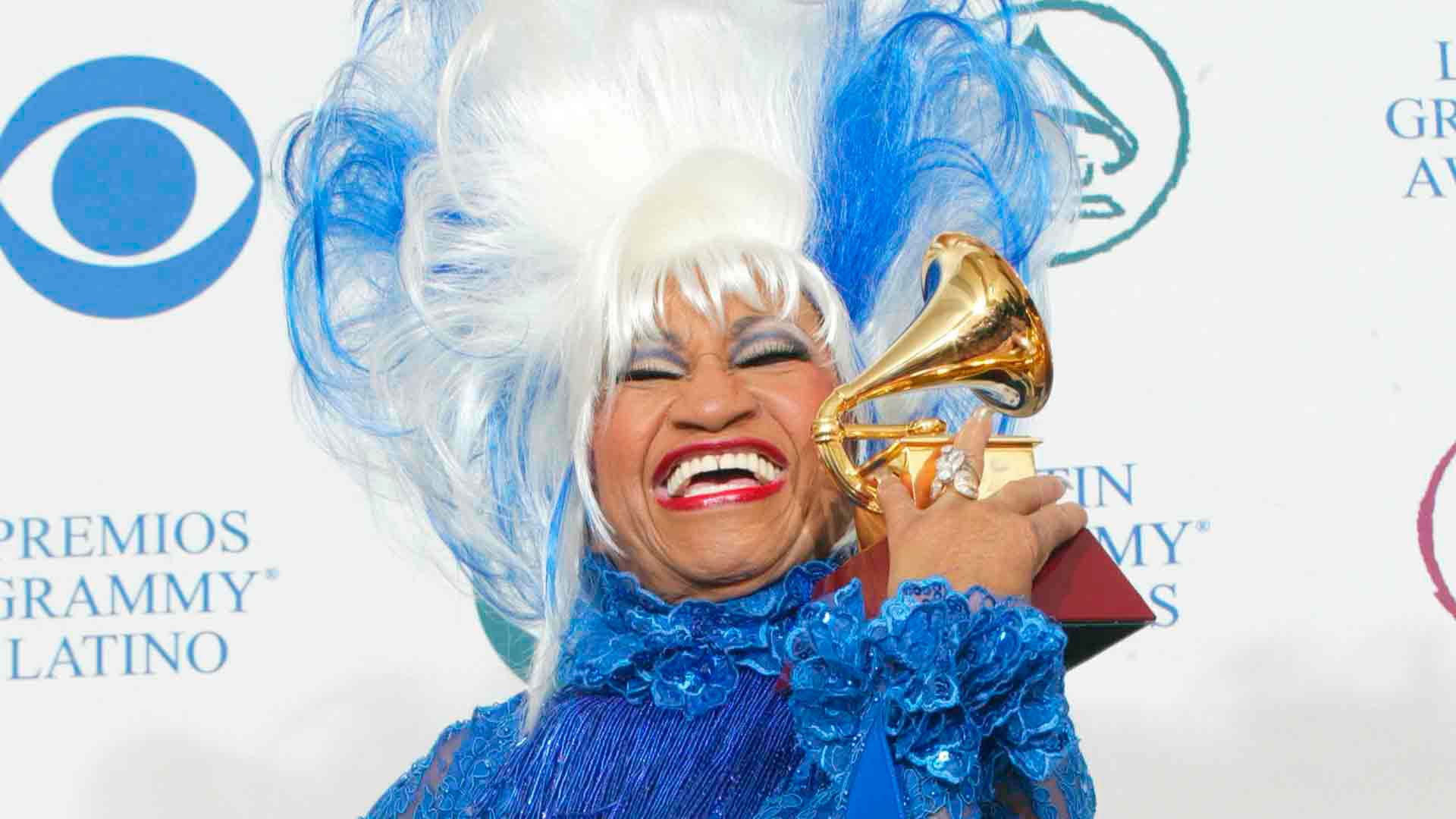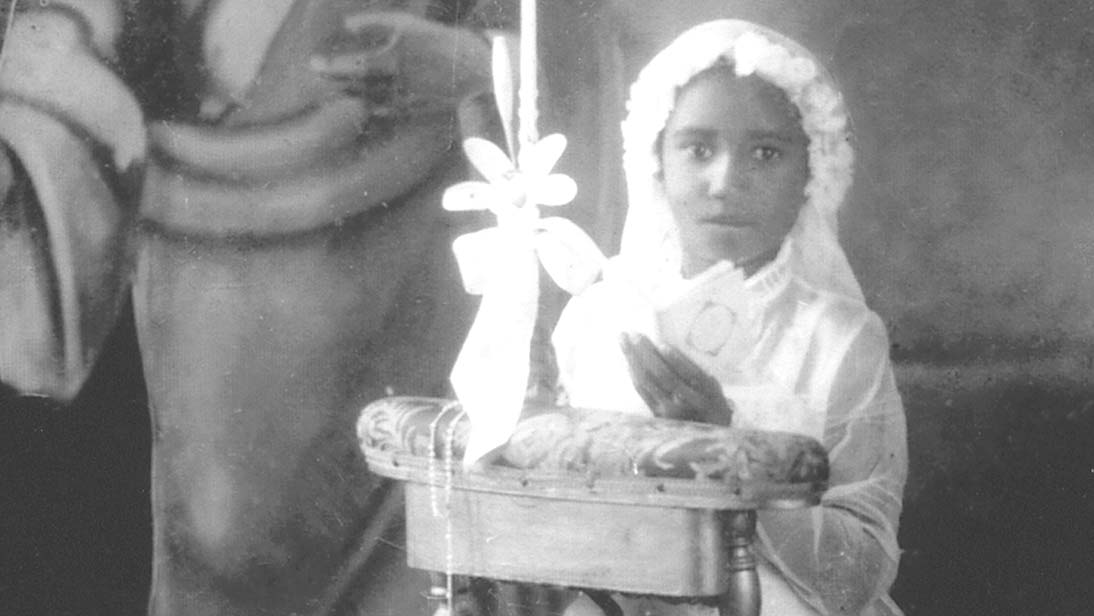When you think of salsa music, one name stands out like a beacon of rhythm and passion—Celia Cruz. Her full name, Celia de la Caridad Cruz Alfonso, is more than just a collection of words; it's the story of a woman who became a global icon. Born in Havana, Cuba, she rose from humble beginnings to become the "Queen of Salsa," leaving an indelible mark on Latin music and culture. So, let's dive into her life, her legacy, and the magic that made her a household name around the world.
Celia Cruz was more than just a singer; she was a cultural phenomenon. Her vibrant performances, powerful voice, and infectious energy turned her into a symbol of Latin pride. But have you ever wondered about her full name and what it represents? Stick around, because we're about to uncover the fascinating details behind Celia Cruz's life and career.
This isn't just about facts and figures. It's about understanding the woman behind the music, the struggles she faced, and the triumphs that defined her life. So, whether you're a die-hard fan or just discovering her music, this article has something for everyone. Let's get started!
Table of Contents:
- Celia Cruz Biography
- Early Life and Background
- Her Musical Journey
- Celia Cruz Full Name Explained
- How She Became an Icon
- Her Lasting Legacy
- A Glimpse into Her Personal Life
- Celia's Impact on Salsa Music
- Challenges She Overcame
- Tributes and Honors
- Conclusion: Celebrating the Queen of Salsa
Celia Cruz Biography
Let's kick things off with a quick look at Celia Cruz's life. Born on October 21, 1925, in Havana, Cuba, she grew up in a large family where music was always in the air. Her early exposure to Afro-Cuban rhythms and traditional Cuban music shaped her future as a performer. But what most people don't know is that her journey wasn't always smooth. She faced numerous challenges, from political upheaval in Cuba to personal struggles that tested her resilience.
Celia's career spanned over five decades, during which she released countless albums, won numerous awards, and became a symbol of Latin pride worldwide. Her signature catchphrase, "¡Azúcar!" (Sugar!), became synonymous with her performances and her fiery personality. But beyond the glitz and glamour, there's so much more to her story. Her full name, Celia de la Caridad Cruz Alfonso, carries deep cultural and familial significance, and we'll explore that in just a bit.
Early Life and Background
Growing up in the vibrant city of Havana, Celia was surrounded by music from an early age. Her mother, Catalina Alfonso, was a devout Catholic who encouraged her to pursue her passion for singing. Her father, Simón Cruz, was a railroad worker who instilled in her the values of hard work and determination. These early influences played a crucial role in shaping her character and career.
Did you know that Celia initially wanted to be a teacher? Yep, she enrolled in Havana's prestigious Normal School for Teachers, but her love for music eventually took over. She began performing in local clubs and radio shows, honing her craft and building a reputation as a talented vocalist. Her breakthrough came when she joined the legendary band Sonora Matancera in 1950, marking the beginning of her rise to stardom.
Her Musical Journey
Celia's musical career was nothing short of extraordinary. She started with Sonora Matancera, where she spent over 15 years, touring extensively throughout Latin America and gaining international recognition. Her powerful voice and dynamic stage presence quickly made her a standout performer. But the real magic happened when she moved to the United States in the 1960s, where she embraced new styles and collaborations that expanded her reach.
Some of her most iconic songs, like "Guantanamera," "Bamboleo," and "La Vida es un Carnaval," became anthems of Latin music. Her ability to blend traditional Cuban rhythms with modern salsa styles made her a pioneer in the genre. And let's not forget her collaborations with artists like Willie Colón, Tito Puente, and Johnny Pacheco, which pushed her career to new heights.
Celia Cruz Full Name Explained
Now, let's talk about her full name—Celia de la Caridad Cruz Alfonso. Each part of her name tells a story. "Celia" is the name she was given at birth, while "de la Caridad" reflects her family's deep Catholic roots. "Cruz" comes from her father's surname, and "Alfonso" honors her mother's side of the family. Together, these names represent her heritage, her faith, and her identity as a proud Cuban woman.
Interestingly, her full name wasn't just a personal identifier; it also symbolized her connection to her roots. Even as she became a global star, Celia never forgot where she came from. Her music often celebrated Cuban culture, and her performances were a testament to her pride in her heritage. So, the next time you hear her name, remember that it's more than just a label—it's a legacy.
How She Became an Icon
Celia Cruz's journey to becoming an icon wasn't just about her talent; it was about her authenticity and passion. She connected with her audience on a personal level, whether she was performing on stage or interacting with fans. Her ability to convey emotion through her music struck a chord with people from all walks of life. And let's be real—her iconic outfits and bold makeup choices added to her larger-than-life persona.
But what really set her apart was her resilience. After leaving Cuba in the wake of the Cuban Revolution, she faced exile and uncertainty. Yet, she never let adversity stop her. Instead, she used her music as a way to heal and inspire others. Her story is a testament to the power of perseverance and the universal language of music.
Her Lasting Legacy
Even years after her passing in 2003, Celia Cruz's influence continues to resonate. Her music remains a staple in Latin households and clubs around the world. She paved the way for countless artists who followed in her footsteps, breaking barriers and proving that women can dominate the music industry. Her contributions to salsa and Latin music have been recognized through numerous awards, including multiple Grammy wins.
Her legacy extends beyond music. She became a symbol of hope and resilience for the Cuban exile community and a source of pride for Latinos everywhere. Her dedication to preserving her cultural heritage while embracing new opportunities is something we can all learn from.
A Glimpse into Her Personal Life
Celia Cruz wasn't just a public figure; she was also a devoted wife and friend. She married Pedro Knight, a fellow musician and trumpeter, in 1947. Pedro not only supported her career but also became her manager later in life, ensuring she had the freedom to focus on her art. The couple didn't have children, but they were surrounded by a loving extended family and a close-knit community of friends.
Here's a fun fact: Celia was known for her generosity and kindness. She often donated her time and resources to charitable causes, especially those supporting children and education. Her warmth and humility made her beloved by fans and peers alike.
Celia's Impact on Salsa Music
When you think of salsa music, Celia Cruz's influence is undeniable. She helped popularize the genre globally, bringing it to audiences who might not have been familiar with it otherwise. Her collaboration with Johnny Pacheco and the Fania All-Stars in the 1970s was a game-changer, introducing salsa to a wider audience and cementing its place in music history.
Her impact extends beyond the music itself. She broke down barriers for women in the male-dominated world of Latin music. Her success proved that female artists could lead orchestras, headline concerts, and command respect in the industry. She paved the way for future generations of Latina musicians, leaving behind a rich legacy of empowerment and inspiration.
Challenges She Overcame
No one's journey is without its challenges, and Celia Cruz was no exception. From navigating the political turmoil in Cuba to rebuilding her life in exile, she faced numerous obstacles. But instead of letting them defeat her, she used them as fuel for her creativity and determination.
One of the biggest challenges she faced was adapting to life in the United States. As a Cuban exile, she had to start over in a new country with a different culture and language. But her resilience and passion for music helped her overcome these hurdles. She worked tirelessly to build a new career, eventually becoming one of the most celebrated artists of her time.
Tributes and Honors
Celia Cruz's contributions to music and culture have been recognized through countless tributes and honors. She was awarded the National Medal of Arts by President Bill Clinton in 1994, a prestigious honor that recognized her impact on American culture. She also received numerous Grammy Awards, both Latin and traditional, cementing her status as a musical legend.
After her passing, her legacy was celebrated in various ways. The Celia Cruz Foundation was established to support music education and humanitarian causes. Her hometown of Havana honored her with a statue, and her influence continues to inspire new generations of artists and fans.
Conclusion: Celebrating the Queen of Salsa
In conclusion, Celia Cruz was more than just a singer; she was a cultural icon whose music and spirit continue to inspire millions. Her full name, Celia de la Caridad Cruz Alfonso, represents her roots, her faith, and her identity as a proud Cuban woman. From her early days in Havana to her rise as a global star, her journey is a testament to the power of passion, resilience, and authenticity.
So, the next time you hear her music or see her name, take a moment to appreciate the incredible legacy she left behind. Whether you're a longtime fan or just discovering her music, there's no denying the impact she had on the world. Share this article with your friends, leave a comment below, and let's keep the spirit of the Queen of Salsa alive!
Thanks for reading, and remember: ¡Azúcar!


